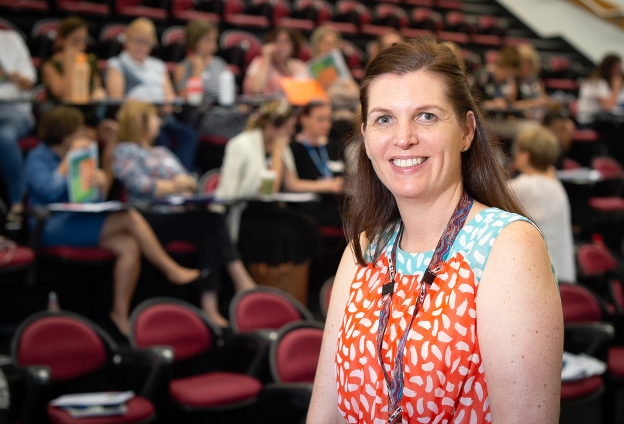
Gold Coast Health has become the first health service in Australia to introduce a new program that endeavours to prevent eating disorders by arming parents with important tools and knowledge to prevent eating disorders in their children.
The Confident Body, Confident Child (CBCC) program is an innovative resource providing parenting strategies to promote healthy eating patterns, physical activity and body satisfaction in children aged two to six.
La Trobe School of Psychology and Public Health Research Fellow, Dr Laura Hart, said children develop their eating patterns as they transition to solid foods.
“If we want children to grow up with healthy eating patterns and with healthy body image, parents need to foster body confidence very early in a child’s life.
“We created Confident Body Confident Child to help parents teach their children about healthy eating without negatively impacting on body image. Given how important Child Health Nurses are in teaching parents about feeding children and keeping them physically active, we are very excited about this partnership with the Gold Coast.”
As part of its implementation, 52 of our Child Health Nurses (CHNs) have been trained in the CBCC program to confidentially provide weight and eating-related advice to parents in their clinics.
Allied Health Researcher and Senior Paediatric Dietitian Lyza Norton played a key role in bringing the first CBCC program to Gold Coast Health after learning about the research.
“Due to the broad reach they have in the community, our CHNs are in an ideal position to deliver CBCC messages and resources to parents in their usual child health clinics, so it makes good sense we upskill our nurses in this way,” Lyza said.
“Research shows that the foundations for negative body image and unhealthy eating behaviours develop in early childhood, and that parents have the most significant influence on how children learn and develop body attitudes and eating patterns.
“Teaching parents how to talk about the topics of body image and media exposure is an essential component in assisting families to get in early before negative health issues arise.
“Research tells us that by tackling body dissatisfaction and unhealthy eating patterns in children from an early age, we can help prevent associated problems as they grow up, such as low self-esteem, depression, obesity and eating disorders.”
The program supports parents and guardians by increasing their knowledge around healthy eating attitudes, positive child body image/confidence, physical activity, screens and reducing negative and unhealthy parental feeding practices and language.
Our Child Health Nurses said they found the training really valuable to their work.
“We were given very useful strategies – amazing actually – and feel it’s about time we had this to use at work. It’s really obvious early intervention is critical,” one said.
Initial research has shown that 18 months after participating in the CBCC program, parents had reduced negative and unhealthy feeding practices, and significantly increased child body image.
Research has shown 59 per cent of girls aged five to eight choose an ideal figure smaller than their own, and 44 per cent of boys aged eight to 11 “think a lot about being thinner”.
At Gold Coast Health, the rise in paediatric eating disorders between 2010 and 2017 has resulted in a seven-fold increase of admissions for eating disorders to our Children’s Inpatient Unit.
Listen to Dr Lyza Norton speaking with Nicole Dyer on ABC Gold Coast



